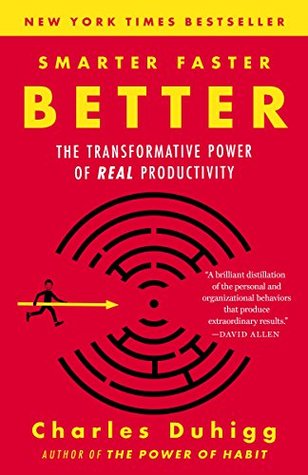More on this book
Community
Kindle Notes & Highlights
Started reading
June 25, 2024
As her research continued, Edmondson found a handful of good norms that seemed to be consistently associated with higher productivity. On the best teams, for instance, leaders encouraged people to speak up; teammates felt like they could expose their vulnerabilities to one another; people said they could suggest ideas without fear of retribution; the culture discouraged people from making harsh judgments. As Edmondson’s list of good norms grew, she began to notice that everything shared a common attribute: They were all behaviors that created a sense of togetherness while also encouraging
...more
There were, however, two behaviors that all the good teams shared. First, all the members of the good teams spoke in roughly the same proportion, a phenomenon the researchers referred to as “equality in distribution of conversational turn-taking.” In some teams, for instance, everyone spoke during each task. In other groups, conversation ebbed from assignment to assignment—but by the end of the day, everyone had spoken roughly the same amount. “As long as everyone got a chance to talk, the team did well,” said Woolley. “But if only one person or a small group spoke all the time, the collective
...more
The data shows there’s a universality to how good teams succeed. It’s important that everyone on a team feels like they have a voice, but whether they actually get to vote on things or make decisions turns out not to matter much. Neither does the volume of work or physical co-location. What matters is having a voice and social sensitivity.” Onstage, Bock brought up a series of slides. “What matters are five key norms,” he told the audience. Teams need to believe that their work is important. Teams need to feel their work is personally meaningful. Teams need clear goals and defined roles. Team
...more
Project Oxygen found that a good manager (1) is a good coach; (2) empowers and does not micromanage; (3) expresses interest and concern in subordinates’ success and well-being; (4) is results oriented; (5) listens and shares information; (6) helps with career development; (7) has a clear vision and strategy; (8) has key technical skills.
If you want to do a better job of paying attention to what really matters, of not getting overwhelmed and distracted by the constant flow of emails and conversations and interruptions that are part of every day, of knowing where to focus and what to ignore, get into the habit of telling yourself stories. Narrate your life as it’s occurring, and then when your boss suddenly asks a question or an urgent note arrives and you have only minutes to reply, the spotlight inside your head will be ready to shine the right way. To become genuinely productive, we must take control of our attention; we
...more
“Creativity is just connecting things,” Apple cofounder Steve Jobs said in 1996. “When you ask creative people how they did something, they feel a little guilty because they didn’t really do it, they just saw something. It seemed obvious to them after a while. That’s because they were able to connect experiences they’ve had and synthesize new things. And the reason they were able to do that was that they’ve had more experiences or they have thought more about their experiences than other people.”
It seemed as if nature’s creative capacities depended on some kind of periodic disturbance—like a tree fall or an occasional storm—that temporarily upset the natural environment. But the disturbance couldn’t be too small or too big. It had to be just the right size. “Intermediate disturbances are critical,” Connell told me. Within biology, this has become known as the intermediate disturbance hypothesis, which holds that “local species diversity is maximized when ecological disturbance is neither too rare nor too frequent.” There are other theories that explain diversification in different
...more
In our own lives, the same lesson applies: When we encounter new information and want to learn from it, we should force ourselves to do something with the data. It’s not enough for your bathroom scale to send daily updates to an app on your phone. If you want to lose weight, force yourself to plot those measurements on graph paper and you’ll be more likely to choose a salad over a hamburger at lunch. If you read a book filled with new ideas, force yourself to put it down and explain the concepts to someone sitting next to you and you’ll be more likely to apply them in your life. When you find
...more
To motivate myself to read studies on airplanes, for instance, I began writing at the top of each manuscript why it was important for me to get that task done. When I pulled a study out of my bag, then, it became a little easier to dive in. Something as simple as jotting down a couple of reasons why I am doing something makes it much simpler to start.
TO GENERATE MOTIVATION • Make a choice that puts you in control. If you’re replying to emails, write an initial sentence that expresses an opinion or decision. If you need to have a hard conversation, decide where it will occur ahead of time. The specific choice itself matters less in sparking motivation than the assertion of control. • Figure out how this task is connected to something you care about. Explain to yourself why this chore will help you get closer to a meaningful goal. Explain why this matters—and then, you’ll find it easier to start.


